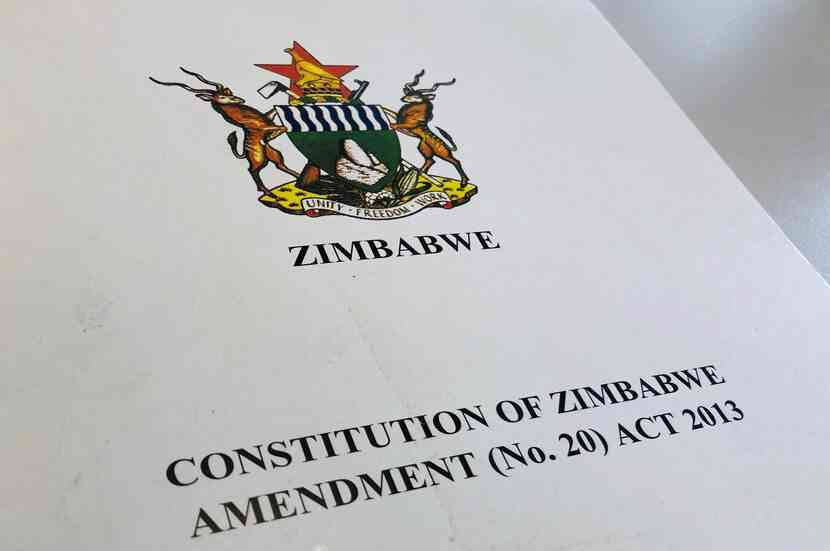
We all want to be wealthy because the journey of life with all its challenges, is better navigated with financial wealth, so we think. What is true, however, is in the pursuit of a fulfilling and prosperous life.
The concept of wealth extends far beyond mere monetary accumulation. True and enduring wealth encompasses various dimensions that together create a balanced and meaningful existence.
Recognising this, a comprehensive understanding of the different types of wealth — relational, informational, financial, spiritual, time, physical and legacy — becomes essential. These seven categories are intertwined, each influencing and reinforcing the others, ultimately shaping our overall well -being and success.
This first instalment explores the first four of the seven wealth domains in depth, elucidating their significance, interrelations and the way they contribute to a holistic sense of prosperity.
Relational wealth
Relational wealth refers to the networks of familial, social, and professional relationships that form the fabric of our lives. It is not merely about knowing people, rather, it is about cultivating meaningful connections where others recognise your worth and are willing to vouch for you in your absence. These networks are the silent engines behind opportunities, support, and security.
Why relational wealth matters
In an era where individual achievement is often celebrated, the power of relationships remains paramount. A robust relational wealth acts as social capital, an invisible yet invaluable resource that can open doors to opportunities that money alone cannot access.
Imagine having a network of trusted individuals who, when your name is mentioned, advocate on your behalf, recommending you for a job, endorsing your business, or offering support during crises. These relationships are built on trust, mutual respect and genuine affinity. They are the backbone of community and collaboration, enabling collective growth.
Build, maintaining relational wealth
Authenticity: Genuine relationships are rooted in sincerity. Building trust takes time and consistent integrity. Posturing kills authenticity, so does scheming and manipulation.
Reciprocity: Wealth in relationships is mutual, giving support without immediate expectation fosters enduring bonds. But in business, it matters a great deal when you seek out those putting money in your business to also deliberately and intentionally put money in their business. Reciprocity ensures that birds of the same feather flock together, intentionally putting food in each other's mouth.
Communication: Effective listening and empathetic understanding strengthen connections. Many people feel unheard at familial, social and professional levels. Mastery in communication will grow your relational wealth, ultimately leading to the financial benefits you desire.
Contribution: Offering value to others, be it advice, resources, or emotional support, enhances relational wealth. Everything does not need to have a price tag. As we build our relational wealth we must seed into those relationships without expecting immediate benefit.
Networking with purpose: Cultivating diverse relationships across different spheres enriches your social capital. The process of cultivating these networks often entails getting outside the confines of your comfort zones, interacting afresh with people from quarters you have never been.
Relationship with other wealth types
Relational wealth fuels informational and financial wealth. Trusted networks tend to have a habit to facilitate access to exclusive information and opportunities. Strong relationships often provide emotional and spiritual support, bolstering resilience in times of adversity.
Informational wealth
Informational wealth is the possession and access to valuable data, insights and knowledge, particularly in the digital age, where information flows instantaneously. It grants the holder a distinct competitive advantage, enabling them to make well-informed, strategic decisions ahead of others.
Importance in life
In today’s hyper-connected world, information is currency. Those who can tap into relevant, timely data can anticipate trends, avoid pitfalls, and seize opportunities before they become apparent to the masses.
For example, early access to market insights can inform investment decisions, while staying abreast of technological advancements can foster innovation. Similarly, knowledge about social dynamics or policy changes can influence personal or organisational strategies.
Acquiring wealth
Cultivating curiosity and seeking knowledge through reading, training, travelling to symposiums and seminars enhances the quality of information acquired and elevates the experience in that sector.
Networking: Engaging with diverse groups to gain insights beyond one’s immediate environment is of paramount importance.
Technology use: Leveraging digital tools, such as news aggregators, analytical platforms and social media, will help in accessing real time information.
Critical thinking: Evaluating sources and discerning credible information from noise. This is key, in a world were techno-geeks are paid to create fake narratives.
Interconnection
Informational wealth is often a catalyst for financial wealth, guiding investments or business decisions. It also supports relational wealth by enabling meaningful conversations and shared knowledge. Understanding information about health, spirituality or personal development influences overall well -being.
Financial wealth
Financial wealth encompasses tangible assets such as cash, stocks, bonds, properties and other investments that serve as the material foundation of prosperity.
While financial wealth is often the focus of societal definitions of wealth, it is important to recognise that financial assets are deeply interconnected with other forms of wealth.
Significance and role
Financial wealth provides the means to fulfil basic needs and pursue aspirations. It offers security, freedom and flexibility, enabling individuals to invest in relationships, personal growth and health.
Be that as it may, financial wealth alone does not guarantee happiness nor fulfilment. It is a facilitator, best understood as a resource that should be supported and enriched by the other wealth domains.
Strategies for building, preserving
Income generation: Developing skills and opportunities to earn sustainably. This is central to the building of financial wealth. Financial education and literacy are the foundation on which financial wealth is built.
Smart investing: Diversifying assets and making informed decisions based on informational wealth. The use of financial specialists is widespread. When in doubt, consult professionals in the know.
Financial literacy: Understanding money management, budgeting, and planning are key. If you are unable to count your money, tracking leakages if any, it will be hard for you to build a sustainable financial empire.
Long term planning: Prioritising savings, retirement and wealth transfer strategies is vital. Postponing consumption is as important as living within your means.
Relationship with other wealth categories
Relational wealth can open doors to investment opportunities. Informational wealth guides prudent financial decisions. Spiritual and physical wealth influence how financial resources are used - whether for meaningful pursuits or superficial consumption. Time wealth determines how effectively financial resources are allocated toward goals.
- Spiritual wealth: The inner compass Understanding spiritual wealth
Spiritual wealth pertains to the deeply held beliefs, values and purpose that give life meaning. It encompasses faith, morality, ethical principles and a sense of connection with something larger than oneself, be it religious, philosophical, or personal.
Why spiritual wealth is vital
Spiritual wealth provides resilience during adversity, clarity of purpose and emotional stability. It influences how we perceive success, how we relate to others and how we allocate our resources.
A strong spiritual foundation motivates the pursuit of other wealth forms ethically and purposefully, guiding decisions that align with core values.
Cultivating spiritual wealth
Reflection:
Regular introspection about life purpose and values. For this to happen, time alone in solitude where reflection is taking place is necessary.
Practices: Meditation, prayer, mindfulness, or other spiritual disciplines ought to be on boarded at a personal or collective level.
Community: Engaging with like -minded individuals for shared growth. No one has a monopoly on great ideas. A sense of community allows for the cross pollination of ideas whilst inspiring and renewing oneself.
Service: Contributing to others’ well-being nurtures spiritual richness.
Interdependence with other wealth types
Spiritual wealth shapes attitudes towards money, relationships, and health. It motivates the pursuit of physical health, fosters genuine relationships and inspires responsible management of financial resources. Conversely, wealth without any spiritual grounding tends to lead to superficial pursuits or ethical dilemmas.
Conclusion: Embracing a holistic view of wealth
True prosperity emerges from nurturing each of these seven interconnected domains of wealth, four of which were discussed in this instalment. Focusing solely on financial wealth neglects the richness that relational bonds, knowledge, purpose, health, and time provides. A balanced approach that is conscious of how each influences the others, leads to a life of genuine abundance.
In essence, wealth is a multifaceted construct, an intricate equilibrium of external and internal riches. Cultivating relational, informational, spiritual, time, and physical wealth empowers us to live authentically, purposefully, and resiliently, ensuring that our pursuit of prosperity enriches every facet of our human experience.
In the end, the most valuable wealth is not what we possess materially, but what we cultivate within ourselves and with others.
- Ndoro-Mkombachoto is a former academic and banker. She has consulted widely in strategy, entrepreneurship and private sector development for organisations that include Seed Co Africa, Hwange Colliery, RBZ/CGC, Standard Bank of South Africa, Home Loans, IFC/World Bank, UNDP, USAid, Danida, Cida, Kellogg Foundation, among others, as a writer, property investor, developer and manager. — @HeartfeltwithGloria/ +263 772 236 341.











